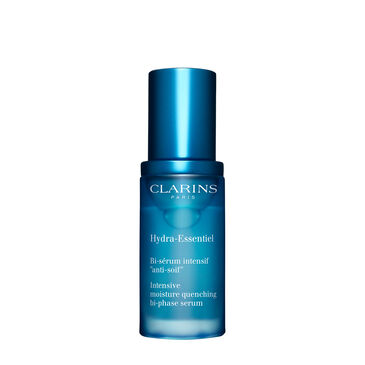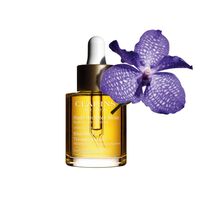My skin is dehydrated. What should I do?
If your skin is feeling a bit dry and itchy, or is looking a little dull, then chances are it’s dehydrated. You might also notice that your tone and complexion is uneven and your fine lines are a little more pronounced than usual.
Dehydrated skin simply means that your skin is lacking hydration — that is, it hasn’t got enough moisture or water. Luckily, dehydration is somewhat easy to treat with simple lifestyle changes. As with many skin conditions, dehydrated skin can be cared for with the combination of a moisturizing skin care regimen and improved lifestyle choices.
While dehydrated skin may seem dry, don’t get it confused with having a dry skin type.
1. What’s the difference between dry and dehydrated skin?
Dry skin is a skin type — like sensitive, oily, sensitive or combination skin — rather than a condition. Dehydrated skin is a skin condition, which means that any skin type can be dehydrated at one time or another. A dry skin type is defined as “one that is predisposed to inadequate production of the skin’s natural oils.”
Dry skin is lacking in natural oils, also known as sebum, and is treated using the best moisturizer for dry skin that will help your skin to retain moisture. Dry skin is normally inherited through genetics, or is a result of hormonal and health conditions, but it can also change with age and season.
As opposed to dehydrated skin, the symptoms of dry skin can include:
- Redness
- Irritation
- Scaly skin
- White flakes
2. My skin is dehydrated. Why?
If you feel like your skin is dehydrated, a number of factors could be causing it to dry out. The main causes of dehydrated skin include:
- Environmental elements: Temperature changes, aggressive air-conditioning, overheated rooms, and air that is too dry or too humid can all dehydrate your skin. The skin is ultra-sensitive to external factors, and the slightest change can be enough to dehydrate it. Whether you have a dry, combination, sensitive, or oily skin type, you can suffer from a lack of moisture from environmental elements.
- Aging: As we age, it’s normal for our skin to become dull, fragile, and prone to dryness. Mature skin often requires even more hydration and nourishment to combat signs of dryness.
- Lifestyle: Lifestyle can have a big impact on hydration of our skin. Not drinking enough water is one of the main reasons why our skin can become dehydrated; but other factors like alcohol intake, smoking, and unhealthy eating habits can contribute to dehydrated skin as well.
3. How to rehydrate your skin.
Luckily, there are a number of ways to rehydrate skin that don’t require drastic measures. From a moisturizing cream and good face moisturizers, to cutting out harmful substances and drinking more water, these are the most effective skin hydration methods:
4. Choose the right skincare products.
Tackle dehydrated skin by replenishing moisture and giving it the ingredients it needs to stay nourished. Firstly, choose the best face moisturizer for your skin type. If you have normal to combination skin, apply the Hydra-Essentiel Silky Cream morning and night.
Enriched with organic leaf of life extract, its formula helps enhance the skin’s ability to retain precious moisture. Oily skin will do better to stay hydrated with the Cooling Gel version of this cream, while very dry skin types need a Rich Cream skin moisturizer for extra comfort and moisture. For perfectly hydrated skin, you can pair your cream with the Hydra Essentiel Bi-Phase Serum, which is the best hydrating serum for dry, dehydrated and sensitive skin. Once or twice a week use a hydrating face mask to pamper your skin with, such as the Hydra-Essentiel Mask for an intense blast of refreshing hydration. In just 10 minutes, this mask quenches parched skin.
Oils such as Blue Orchid Oil visibly tone and restore your skin and leave it with a fresh and hydrated appearance. What’s more, this oil lifts dead skin off of your face and removes the dull appearance that is a result of dehydration.
5. Drink up.
Rehydration starts from within. Remember to drink at least 64 ounces of water every day, even in the winter. Cold weather is harsh on the skin, and although you may not feel as thirsty as during the summer, drinking lots of water is crucial to preventing dehydrated skin. You lose a heightened amount of moisture when you exercise through sweating, so it’s important to stay hydrated while you exercise too. Experts in skin care, advise that you take a sip or two of water every 20 minutes while exercising.
6. Lifestyle changes.
You can make a few slight changes to your lifestyle that could go a long way in maintaining skin hydration. Alcohol dehydrates your body, so try and cut down on drinking too much. If you do have a heavy night, ensure that you hydrate your body more than you usually would. Smoking is also harmful to your skin, so cutting back or quitting is the best thing that you can do to avoid dehydrated skin, and to protect your overall health. Healthy foods such as fruit and vegetables and those high in Essential Fatty Acids (nuts, salmon, etc.) are essential in your diet if you want skin that looks and feels hydrated and healthy. Try to stay clear of highly processed foods that are filled with chemicals and other unhealthy ingredients that can have a harsh effect on the state of your skin.
Got more questions about Clarins products? Find all the answers you need here.
Did you get the answers you were looking for? Share the love with your friends!





